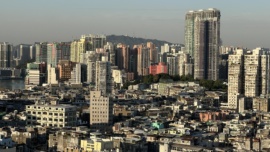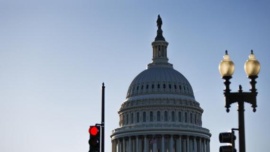The European Central Bank must not “overreact” to transitory supply shortages that have pushed inflation above the bank’s two percent target, president Christine Lagarde said on Tuesday.
Speaking at the opening of the ECB Forum on Central Banking, Lagarde said “the key challenge is to ensure that we do not overreact to transitory supply shocks” that have been caused by the coronavirus pandemic.
Shortages of raw materials and key components like semiconductors have added to rising prices but “have no bearing on the medium term,” Lagarde said.
Instead the bank should seek to foster “positive demand forces” that could “durably lift inflation” towards the two-percent target.
The ECB has for years used ultra-low interest rates, cheap loans to banks and mass bond-buying to encourage spending and investment in the euro area, in a bid to drive up inflation and boost growth.
It also unleashed a 1.85 trillion euro ($2.2 trillion) emergency bond-purchasing programme (PEPP) last year to keep credit flowing during the pandemic.
Inflation in the 19-nation eurozone reached a 10-year high in August of three percent.
In its most recent forecasts published earlier this month the ECB predicted that inflation would come in at 2.2 percent in 2021, before falling back to 1.7 and 1.5 the following two years.
On Wednesday, Lagarde will be joined in a discussion at the virtual central bank forum by other senior central bankers, including US Federal Reserve Chair Jerome Powell.
New forecasts by published last week show central bankers at the Fed now expect interest rates to rise next year, taking the bank’s benchmark lending rate above zero for the first time since the start of the pandemic.
Powell said he expected inflation “to drop back toward the longer run goal” of two percent but acknowledged there is an “upside risk,” due to supply challenges and the shortage of workers.
Pressure has come from some members on the ECB’s governing board for policymakers to take the risk that inflation could climb higher more seriously.






















